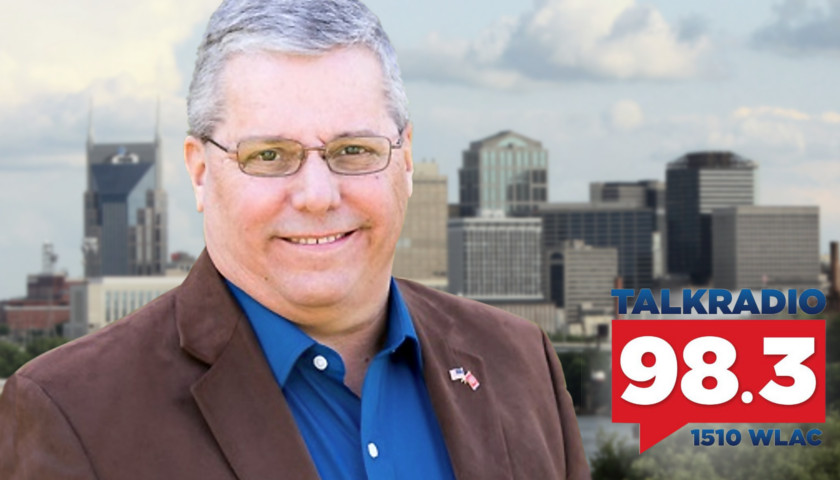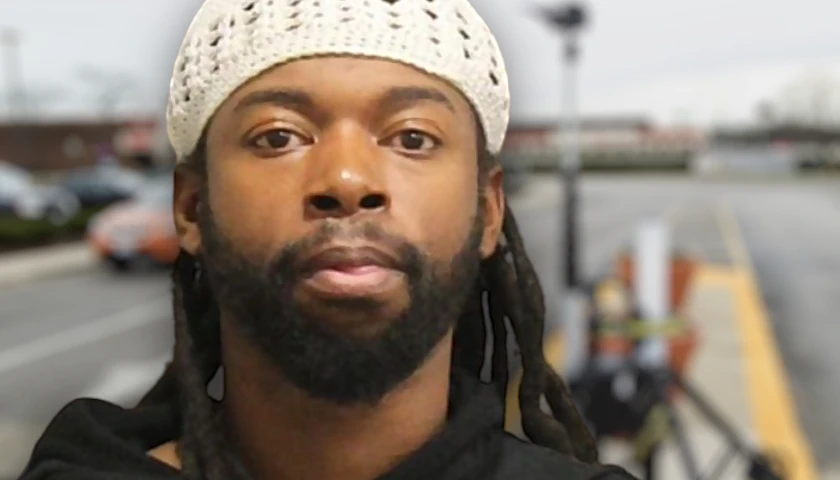Live from music row Monday morning on The Tennessee Star Report with Michael Patrick Leahy – broadcast on Nashville’s Talk Radio 98.3 and 1510 WLAC weekdays from 5:00 am to 8:00 am – Leahy and in-studio guest Metro Councilman Steve Glover discussed the Nashville city budget and how Mayor Cooper’s taken a good first step to get $12 million back from the Music City Convention Center.
Towards the end of the segment, Glover discussed that his primary focus will be on reviewing and fixing any of the overpayments and spending that has built up over the past administrations in the city of Nashville.
Leahy: We are joined in studio by Crom Carmicheal the original all-star panelist and by Steve Glover Metro council member at large. Welcome, Steve. You’ve been on the council for the last couple of weeks. What’s going on with the city of Nashville?
Glover: Well for the new term. I’ve actually been on the council for eight years.
Leahy: That’s right.
Glover: Well, what’s going on is Mayor Cooper is beginning to do what he said he was going to do. 12.5 million dollars in property taxes from MCC.
Leahy: What’s MCC?
Glover: Music City Center.
Leahy: Ah, Music City Center.
Glover: Which we gave up all those revenues on property taxes when the thing was built. Now he has negotiated.
Leahy: How did he get them back? Why couldn’t David Briley do this?
Glover: I don’t know the answer to why somebody else couldn’t do it. I just know Mayor Cooper has done it.
Leahy: So he knows numbers.
Glover: He knows numbers very well.
Leahy: He’s a real estate developer.
Glover: Yes.
Leahy: So he basically went into Music City Center and said give us the 12 million back?
Glover: I can’t say what he basically did because I haven’t seen all the details of the deal. But I have seen 12.5 million reoccurring money for the city. That’s a great thing.
Leahy: That’s moving in the right direction.
Glover: Right.
Carmichael: How big a whole does Metro have on an annual basis?
Glover: Well, it depends on how you count the numbers. If we say it was just the parking deal it was about 30-35 million. I will contend it’s higher than that. I think it’s actually 50 plus million because I think we count on the windfalls of new properties. New big developments coming online.
They were hoping for those revenues. That’s one of the reasons we got zapped by the state controllers office saying, ‘Wait. The way you’re counting money doesn’t really work. It doesn’t add up.’ So if you look at reported 30 million give or take a couple I believe 50 million in the hole. The 12.5 million is going to be a massive help, ok?
Leahy: It’s going to help. Good going Mayor Cooper.
Glover: There are some other things that I’m working on as well that I’m researching heavily right now. I truly believe we have an excess of 80-120 million dollars of money that’s available to us if we redirect it on the way it’s being utilized.
Leahy: Really? That sounds promising.
Glover: I think the most important thing out of the first couple of weeks here is that all this stuff takes a little bit of time. Where we got to in Nashville did not happen with one administration or two. It happened with multiple administration and Mayor Cooper does understand numbers.
And so, therefore, he’s focused heavily on getting that part fixed. He’s focused heavily on some other areas. Now I’m not going to speak on his behalf because he’s working on stuff I’m certain I’m not even aware of. I’m working on some things that I know his administration is aware of because I’ve told them.
I will say publicly right now that fairgrounds for me is one of the main priorities that I’m working on because of the referendum. We had a new part of our oath this time that we had to pledge upon. Constitution of the United States. Constitution of Tennessee. That was standard. But this time we had to also pledge an oath to the charter of the Metropolitan Government of Nashville.
Leahy: Now, why did that happen? I think it’s a good thing.
Glover: Well, it’s because of a charter amendment that the people voted on and required it. And so, therefore, we had to do that. So now, I think it’s much more difficult to ignore the 2011 vote that the people did with over an overwhelming 70%. I think it was actually 73% that voted to leave our fairgrounds. We want racing. We want the flea market. We want this.
Leahy: And so what are you focusing on? What do you mean when you say you are focusing on the fairgrounds?
Glover: The racetrack. Because that’s still one infrastructure that’s left there that is absolutely critical to make sure we keep that in play. It will require some work. It will require maintenance and bringing it up to ‘standards.’ But we’ve got to do that. It’s been amazing to me that we’ve been able to do all these other projects, which really we didn’t.
Leahy: So you want to bring the racetrack up to speed by investing some money in it. And then what happens? Do they make money off of that?
Glover: Well, they’re already making money. I want us to make more money.
Carmicheal: So the fairgrounds itself is owned by Metro.
Glover: Right.
Carmichael: So it doesn’t throw off any property taxes.
Glover: No.
Carmichael: But the operations of businesses on the fairgrounds does throw off revenue.
Glover: Tax codes and those kinds of things.
Carmicheal: Alright. So you have a racetrack. How many races a year is a number that you would like to see?
Glover: We’ll grab it in a few minutes.
(Commercial break)
Leahy: So Steve, we were talking about the mess that is the Nashville city budget and how Mayor Cooper’s taken a good first step to get 12 million back from the Music City Convention Center. What else are you working on? You’re working on some stuff. Now you can’t tell all of it yet. But what’s the general direction.
Glover: The general direction is to go in and locate and confirm what I believe is over payments in certain arenas. What I believe is probably, I’m not going to say incorrect spending but I’ll kind of keep it there. (Leahy laughs)
Leahy: You’re being kind.
Glover: Well yeah because frankly until we finish all the homework on it and we’re ready. The other thing we’ve got right now Micheal is our legal staff is getting ready to change tomorrow.
Leahy: The city?
Glover: No for the Metro Council.
Leahy: Oh, Metro Council has its own legal staff?
Glover: Right. So that’s changing tomorrow because we had a gentleman that is now going down to help the Mayor with some policy and things of that nature.
Leahy: So he’s leaving?
Glover: Well, he’s going downstairs.
Leahy: Moving to a different role.
Glover: Yeah. And we’re getting the city law director under the Barry administration, Jon Cooper who worked in the council office…
Leahy: OK. Let’s be clear. It’s a different Jon Cooper.
Glover: J-o-n Cooper. Lawyer Jon Cooper.
Leahy: Unrelated to Mayor John Cooper. And it has been really fun trying to keep those two differentiated.
Leahy: So what do we call them? Mayor John and Lawyer Jon.
Glover: Let me tell you, I’m excited about lawyer Jon Cooper coming up to the council office because he has a lot of institutional knowledge in various areas. A lot of folks don’t think that’s important but it really is important.
Leahy: Isn’t it?
Glover: Because it will help you with history. Before you go do some of the same stupid (Leahy chuckles) things in the future that have been done in the past you have somebody there you can bounce ideas off of.
Leahy: See Crom, this is why I like steve so much. Because he says it the way it is. And the government does the same stupid things all the time doesn’t it?
Carmichael: Well, any bureaucracy even in the private sector bureaucracies wants to grow. But in the private sector compettition is the natural constraint against stupidity in the private sector. In the government sector, it’s really hard to come up with natural constraints.
Glover: We have a monopoly.
Carmichael: I want to congratulate you on your victory Steve and thank you for your service because what you’re doing is very very hard work.
Glover: Well, it is but it’s also very fulfilling when we accomplish the objective. And so one of the funniest things I thought that occurred after I got elected, is I started to get emails and messages from folks saying, ‘Please don’t change.’ And I’m like, ‘Have you followed me for the past how many years?’ (Leahy laughs) ‘I’m not going to change. I am who I am.’ Put me in a China shop I’m still going to break all the glass.
Leahy: You have a little more help I think on the council than maybe you did before.
Glover: Yes. We do.
Leahy: Several more conservative folks were elected at the district level. That’s encouraging I think. Now how do you go about doing your work? Do you just do this out of your office? How do you work on projects? Has the council actually physically met?
Glover: Oh yeah. We’ve had one official meeting.
Leahy: When was that meeting and how was it different from any other previous meetings?
Glover: October first. I don’t know that it was necessarily any different. You get an agenda and the things you discuss. One of the things on the agenda was a resolution that said we wanted to basically get rid of poverty and we want to do all these various things in Nashville.
Leahy: Oh, that’s so nice. I’m so glad they want to get rid of poverty. (Laughs)
Listen to the full third hour:
– – –
Tune in weekdays from 5:00 – 8:00 am to the Tennessee Star Report with Michael Patrick Leahy on Talk Radio 98.3 FM WLAC 1510. Listen online at iHeart Radio.





